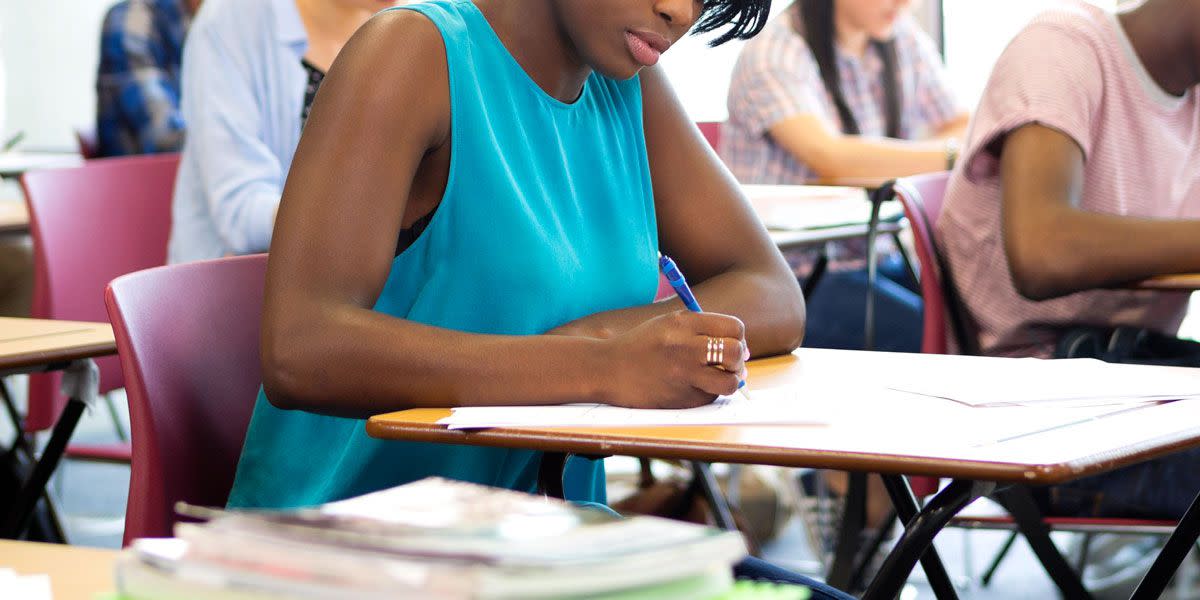Black Girls Unfairly Disciplined for Dress Code

A new report from the National Woman's Law Center found dress codes are unnecessarily strict for black female students, who are most harshly punished for breaking dress code rules. The report adds more fuel to the long, ongoing debate that dress codes are bad for girls, and particularly so for black girls.
As reported by Vox, the report is part of a growing body of research that shows black girls "are punished more severely in school than girls of other races." Previous research found that black students are expelled and suspended from school at a rate more than three times that of white students. Other studies found that black girls in particular are punished more severely because they're seen as "more aggressive and less feminine" than white peers.
This latest report found that dress code - a minor infraction, in most cases - plays a major role in how black girls are unfairly treated in school.
Researchers focused on schools in the Washington, D.C. area, and after examining dress code policies, found that "68 percent of D.C. public high schools that publish their dress codes online ban hair wraps or head scarves," which targets students of color. They also found that black girls are nearly 21 times as likely to be suspended than white girls, and that "one reason for this disproportionate punishment is that adults often seen black girls as older and more sexual than their white peers, and so in need of greater correction for minor misbehaviors like 'talking back' or wearing a skirt shorter than permitted."
The report mentions plenty of unsurprisingly sexist stereotypes in school dress code policies. A lot of these policies are also extremely vague, leaving administrators to decide what they think is appropriate. Researchers cited an example from the Thurgood Marshall Academy Dress Code Policy:
"Clothes that are inappropriate in size (too tight) or see-through or expose any undergarments may not be work. Other inappropriate items determined by a Thurgood Marshall Academy administrator will not be allowed. Staff members will determine whether a student's attire complies with the dress code and will report any violations to the Dean of Students. The Dean's decision regarding dress code is final."
In the Root, Angela Helm writes that these vague policies allow for further racism at the hands of school administrators. "It should be noted that African American girls' bodies are often different than their Caucasian peers, and so a short skirt on a girl with curves is seen differently than one on a smaller girl," she writes. "The point being it's the same damn skirt."
Quotes from students in the report mirror that same sentiment, because teenagers aren't idiots and notice things.
"I’ve noticed how my friends have gotten dress coded on stuff because they have
bigger hips, bigger breasts, or bigger butts, yet I have worn similar things but I did
not get dressed coded because I’m skinnier and it is less noticeable on me," said Ayiana Davis, a 16-year-old student at Duke Ellington School of the Arts. "That kind of thing teaches girls to be ashamed of their bodies."
You can read the whole report on the National Women's Law Center website.
Follow Hannah on Twitter.
You Might Also Like

